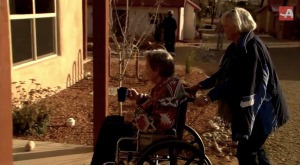http://youtu.be/VvnoVq86oqk
 A new AARP study tells us what all of us Asian Americans and Pacific Islanders (AAPIs) already know. AAPIs are more likely than any other racial group to care for their elders. “Caregiving Among Asian Americans and Pacific Islanders” is the title of the first of three reports by AARP about issues affecting AAPIs age 50 and older.
A new AARP study tells us what all of us Asian Americans and Pacific Islanders (AAPIs) already know. AAPIs are more likely than any other racial group to care for their elders. “Caregiving Among Asian Americans and Pacific Islanders” is the title of the first of three reports by AARP about issues affecting AAPIs age 50 and older.
The study found that 73 percent of AAPIs age 45-55 are expecting to care for their aging parents and/or older relatives. This compares with just under half of the total population of the same age (49 percent). Along with caring for elders, AAPIs are more likely to talk to doctors on behalf of their elders, contribute financially, and handle paperwork and bills for their elders.
And of course, many more AAPIs, age 50 and above, live in multi-generational households compared with the total population of Americans (17 percent versus 7 percent).
Like most Asian Americans I was raised with the expectation that I’d be caring for my parents as they got older. I’ve written about some of my experience with caring for my aging parents in a previous 8Asians article that focused on which child got to take care of their parents as they got older.
The AARP report though focuses on a few other aspects of caring for an immigrant parent that many children of immigrants take for granted, and for those who’ve never had the experience, probably never even realized was part of the immigrant experience. Since my mother never spent the time to perfect her English, my siblings and I were always the one to translate at the doctor’s office, and just about everywhere else starting from the time we were small kids. We also filled out all the paperwork for our parents even though we were just small children.
Translating and taking care of paperwork and bills was just something that continued on into adulthood and into elder care. By the time my parents moved into my home as senior citizens, so that I could care for them more easily, I was again taking them to doctor’s appointments, and also translating, and filling out paperwork. And this time around, I was also the main financial support for the whole family. I tell this story to my own elementary school age daughter, but she doesn’t get it.
Every night my daughter expects us to answer questions for her about her homework and help her figure out problems she doesn’t understand. I tell her I never had help with my homework. I mean really I had no one who would have understood the English in my homework to help. I say this and my daughter looks at me blankly, and my husband, just tells me, he’s heard it already, and enough, we’re helping our daughter with her homework. At the same time, we don’t set any expectations that our daughter will care for us when we’re older. I guess we’re too American for that. Instead my husband has purchased long-term care insurance, and tells us to put him in a nursing home when it’s time.
But secretly, inside my mind, I wish my daughter will remember and will be the one to care for me when I get older.





